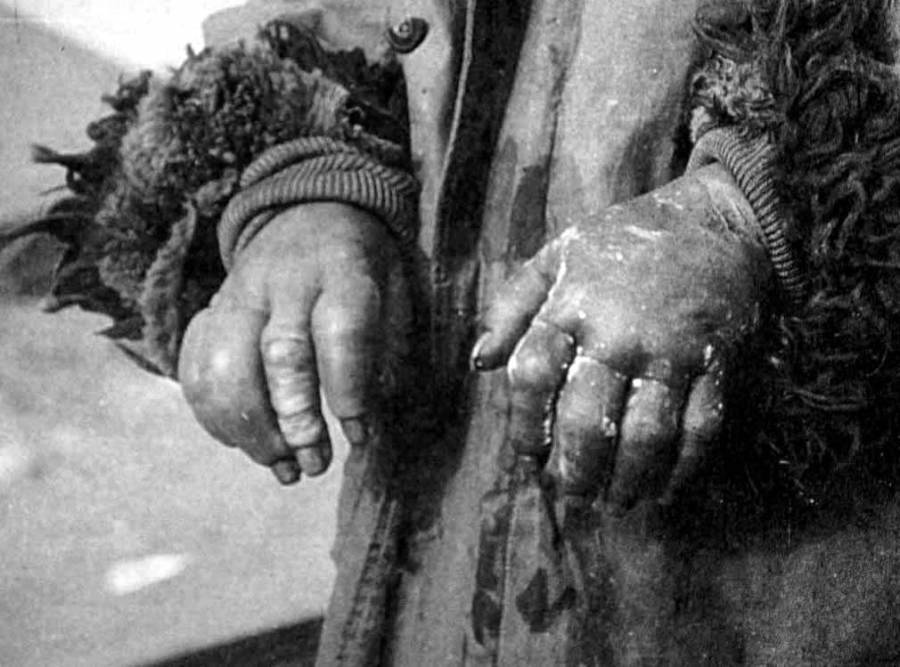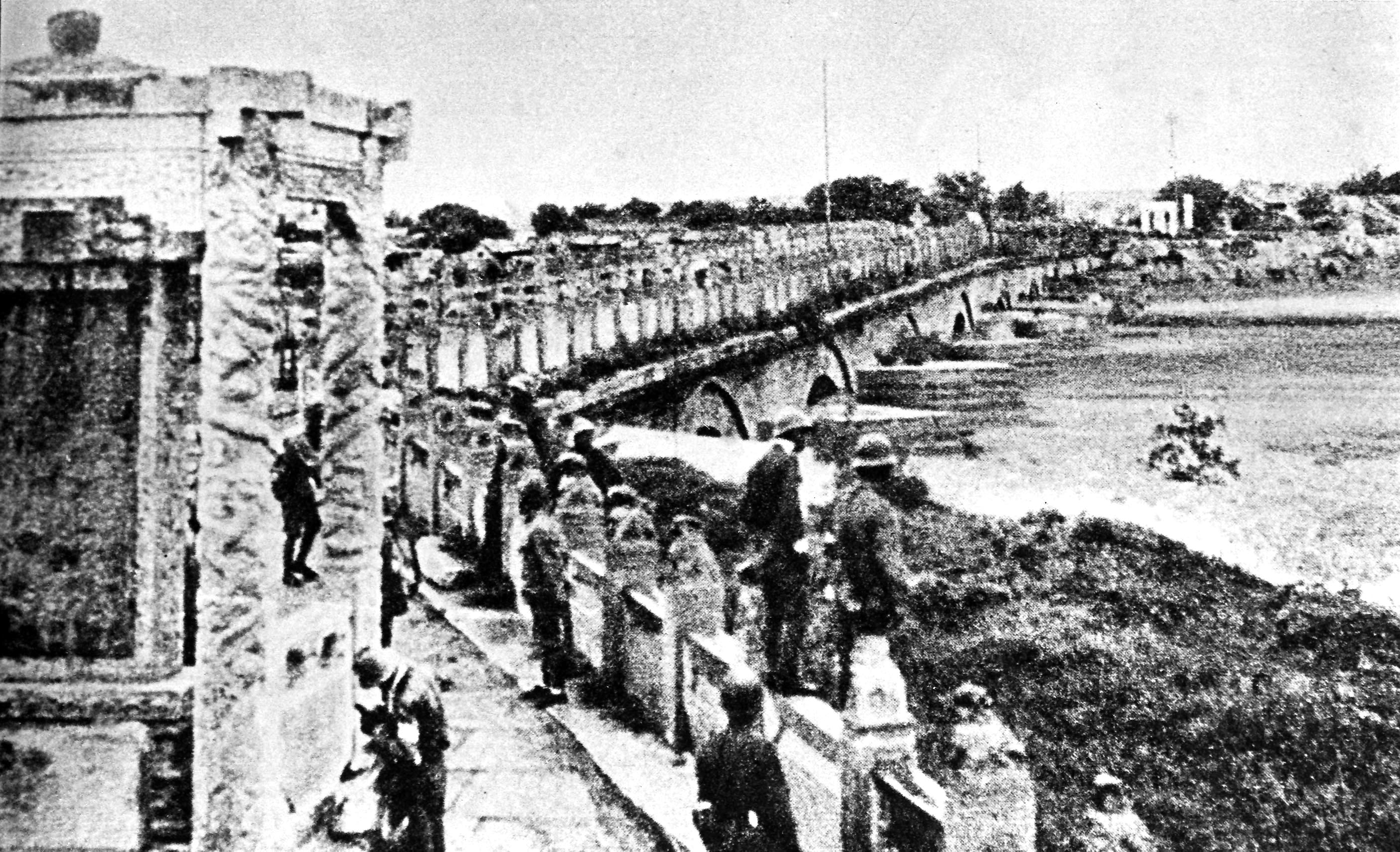

The Japanese were the only large-scale wartime users of biological weapons. Unit 731 in Manchuria operated under the cover name of the Kwantung Army Epidemic Protection and Water Supply Unit. Thousands of captive Chinese were murdered in the course of tests at 731’s base near Harbin, many being subjected to vivisection without the benefit of anaesthetics. Some victims were tied to stakes before anthrax bombs were detonated around them. Women were laboratory-infected with syphilis; local civilians were abducted and injected with fatal viruses. In the course of Japan’s war in China, cholera, dysentery, plague and typhus germs were broadcast, most often from the air, sometimes with porcelain bombs used to deliver plague fleas.


Wanping does not look like the sort of place where the destinies of nations are decided. It is an unremarkable village about 15 km southwest of Beijing. It does, however, have one impressive feature: a granite bridge decorated with the carved heads of nearly five hundred stone lions, which drew the attention of the Venetian explorer Marco Polo, who called it 'one of the finest bridges in the world'. This endorsement gave it the name by which it is best known in the West, the Marco Polo Bridge. In China, it is known as Lugouqiao.
In July 1937, diplomats stationed in northern China sensed something in the air. 'Rumors have been current in Peiping [Beiping] during the past week of possible disorders being created by disgruntled Chinese or Japanese Nationals,' wrote the Counsellor in the US Embassy. 'The rumors seem primarily due to the uneasiness which has developed among local Chinese as a result of Sung's lengthening absence.' The Counsellor's judgement was that General Song [Sung] was away from base because he was trying to avoid the Japanese, who wanted to pressure him into allowing them to dominate more of north China.

In the summer of 1937 the area around Lugouqiao was heavily populated by rival troops. The Chinese 29th Army was under the command of local strongman Song Zheyuan. Also positioned nearby were soldiers of the Japanese North China Garrison Army. Japanese troops started firing in the area around Wanping. The local Japanese commander declared that one of his men had gone missing, and demanded entry to Wanping to search for him. The accusation was clear: the Chinese must have kidnapped or killed him. Song's troops refused, and low-level skirmishes broke out.
For a FULL illustrated exposition on the subject please visit https://en.historylapse.org/japanese-in ... panese-war